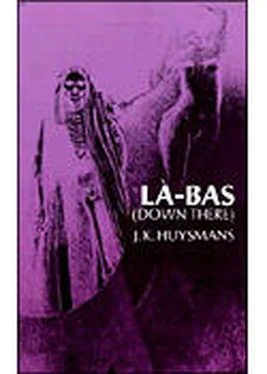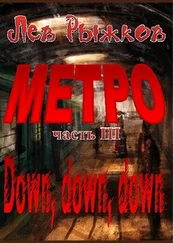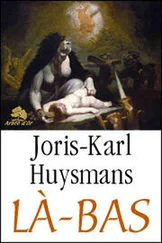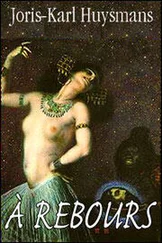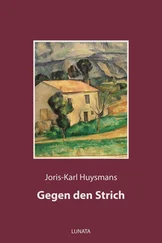Joris-Karl Huysmans - Down There (Là-Bas)
Здесь есть возможность читать онлайн «Joris-Karl Huysmans - Down There (Là-Bas)» весь текст электронной книги совершенно бесплатно (целиком полную версию без сокращений). В некоторых случаях можно слушать аудио, скачать через торрент в формате fb2 и присутствует краткое содержание. Жанр: Классическая проза, на английском языке. Описание произведения, (предисловие) а так же отзывы посетителей доступны на портале библиотеки ЛибКат.
- Название:Down There (Là-Bas)
- Автор:
- Жанр:
- Год:неизвестен
- ISBN:нет данных
- Рейтинг книги:3 / 5. Голосов: 1
-
Избранное:Добавить в избранное
- Отзывы:
-
Ваша оценка:
- 60
- 1
- 2
- 3
- 4
- 5
Down There (Là-Bas): краткое содержание, описание и аннотация
Предлагаем к чтению аннотацию, описание, краткое содержание или предисловие (зависит от того, что написал сам автор книги «Down There (Là-Bas)»). Если вы не нашли необходимую информацию о книге — напишите в комментариях, мы постараемся отыскать её.
Down There (Là-Bas) — читать онлайн бесплатно полную книгу (весь текст) целиком
Ниже представлен текст книги, разбитый по страницам. Система сохранения места последней прочитанной страницы, позволяет с удобством читать онлайн бесплатно книгу «Down There (Là-Bas)», без необходимости каждый раз заново искать на чём Вы остановились. Поставьте закладку, и сможете в любой момент перейти на страницу, на которой закончили чтение.
Интервал:
Закладка:
"Yes, I have just come from a consultation with those whom the journals characterize as 'princes of science.' For a quarter of an hour I have had to listen to the most contradictory opinions. On one point, however, all agreed: that my patient was a dead man. Finally they compromised and decided that the poor wretch's torture should be needlessly prolonged by a course of moxas. I timidly remarked that it would be simpler to send for a confessor, and then assuage the sufferings of the dying man with repeated injections of morphine. If you had seen their faces! They came as near as anything to denouncing me as a tout for the priests.
"And such is contemporary science. Everybody discovers a new or forgotten disease, and trumpets a forgotten or a new remedy, and nobody knows a thing! And then, too, what good does it do one not to be hopelessly ignorant since there is so much sophistication going on in pharmacy that no physician can be sure of having his prescriptions filled to the letter? One example among many: at present, sirup of white poppy, the diacodia of the old Codex, does not exist. It is manufactured with laudanum and sirup of sugar, as if they were the same thing!
"We have got so we no longer dose substances but prescribe ready-made remedies and use those surprising specifics which fill up the fourth pages of the journals. It's a compromise medicine, a democratic medicine, one cure for all cases. It's scandalous, it's silly.
"No, there is no use in talking. The old therapeutics based on experience was better than this. At least it know that remedies ingested in pill, powder, or bolus form were treacherous, so it prescribed them only in the liquid state. Now, too, every physician specializes. The oculists see only the eyes, and, to cure them, quite calmly poison the body. With their pilocarpine they have ruined the health of how many people for ever! Others treat cutaneous affections. They drive an eczema inward on an old man who as soon as he is 'cured' becomes childish or dangerous. There is no more solidarity. Allegiance to one party means hostility to all others. Its a mess. Now my honourable confrères are stumbling around, taking a fancy to medicaments which they don't even know how to use. Take antipyrine, for example. It is one of the very few really active products that the chemists have found in a long time. Well, where is the doctor who knows that, applied in a compress with iodide and cold Bondonneau spring water, antipyrine combats the supposedly incurable ailment, cancer? And if that seems incredible, it is true, nevertheless."
"Honestly," said Durtal, "you believe that the old-time doctors came nearer healing?"
"Yes, because, miraculously, they know the effects of certain invariable remedies prepared without fraud. Of course it is self-evident that when old Paré eulogized 'sack medicine' and ordered his patients to carry pulverized medicaments in a little sack whose form varied according to the organ to be healed, assuming the form of a cap for the head, of a bagpipe for the stomach, of an ox tongue for the spleen, he probably did not obtain very signal results. His claim to have cured gastralgia by appositions of powder of red rose, coral and mastic, wormwood and mint, aniseed and nutmeg, is certainly not to be borne out, but he also had other systems, and often he cured, because he possessed the science of simples, which is now lost.
"The present-day physicians shrug their shoulders when the name of Ambrose Paré is mentioned. They used to pooh-pooh the idea of the alchemists that gold had medicinal virtue. Their fine scorn does not now prevent them from using alternate doses of the salts and of the filings of this metal. They use concentrated arseniate of gold against anemia, muriate against syphilis, cyanide against amenorrhea and scrofula, and chloride of sodium and gold against old ulcers. No, I assure you, it is disgusting to be a physician, for in spite of the fact that I am a doctor of science and have extensive hospital experience I am quite inferior to humble country herborists, solitaries, who know a great deal more than I about what is useful to know-and I admit it."
"And homeopathy?"
"It has some good things about it and some bad ones. It also palliates without curing. It sometimes represses maladies, but for grave and acute cases it is impotent, just like this Mattei system, which, however, is useful as an intermediary to stave off a crisis. With its blood-and lymph-purifying products, its antiscrofoloso, its angiotico, its anti-canceroso, it sometimes modifies morbid states in which other methods are of no avail. For instance, it permits a patient whose kidneys have been demoralized by iodide of potassium to gain time and recuperate so that he can safely begin to drink iodide again!
"I add that terrific shooting pains, which rebel even against chloroform and morphine, often yield to an application of 'green electricity.' You ask me, perhaps, of what ingredients this liquid electricity is made. I answer that I know absolutely nothing about it. Mattei claims that he has been able to fix in his globules and liquors the electrical properties of certain plants, but he has never given out his recipe, hence he can tell whatever stories suit him. What is curious, anyway, is that this system, thought out by a Roman count, a Catholic, has its most important following and propaganda among Protestant pastors, whose original asininity becomes abysmal in the unbelievable homilies which accompany their essays on healing. Indeed, considered seriously, these systems are a lot of wind. The truth is that in the art of healing we grope along at hazard. Nevertheless, with a little experience and a great deal of nerve we can manage so as not too shockingly to depopulate the cities. Enough of that, old man, and now where have you been keeping yourself?"
"Just what I was going to ask you. You haven't been to see me for over a week."
"Well, just now everybody in the world is ill and I am racing around all the time. By the way, I've been attending Chantelouve, who has a pretty serious attack of gout. He complains of your absence, and his wife, whom I should not have taken for an admirer of your books, of your last novel especially, speaks to me unceasingly of them and you. For a person customarily so reserved, she seems to me to have become quite enthusiastic about you, does Mme. Chantelouve. Why, what's the matter?" he exclaimed, seeing how red Durtal had become.
"Oh, nothing, but I've got to be going. Good night."
"Why, aren't you feeling well?"
"Oh, it's nothing, I assure you."
"Oh, well," said Des Hermies, knowing better than to insist. "Look at this," and took him into the kitchen and showed him a superb leg of mutton hanging beside the window. "I hung it up in a draft so as to get some of the crass freshness out of it. We'll eat it when we have the astrologer Gévingey to dine with us at Carhaix's. As I am the only person alive who knows how to boil a gigot à l'Anglaise , I am going to be the cook, so I shan't come by for you. You will find me in the tower, disguised as a scullery maid."
Once outside, Durtal took a long breath. Well, well, his unknown was Chantelouve's wife. Impossible! She had never paid the slightest attention to him. She was silent and cold. Impossible! And yet, why had she spoken that way to Des Hermies? But surely if she had wanted to see him she would have come to his apartment, since they were acquaintances. She would not have started this correspondence under a pseudonym-
"H. de Maubel!" he said suddenly, "why, Mme. Chantelouve's name is Hyacinthe, a boy's name which suits her very well. She lives in the rue Babneux not vary far from the rue Littré post-office. She is a blonde, she has a maid, she is a fervent Catholic. She's the one."
And he experienced, almost simultaneously, two absolutely distinct sensations.
Читать дальшеИнтервал:
Закладка:
Похожие книги на «Down There (Là-Bas)»
Представляем Вашему вниманию похожие книги на «Down There (Là-Bas)» списком для выбора. Мы отобрали схожую по названию и смыслу литературу в надежде предоставить читателям больше вариантов отыскать новые, интересные, ещё непрочитанные произведения.
Обсуждение, отзывы о книге «Down There (Là-Bas)» и просто собственные мнения читателей. Оставьте ваши комментарии, напишите, что Вы думаете о произведении, его смысле или главных героях. Укажите что конкретно понравилось, а что нет, и почему Вы так считаете.
